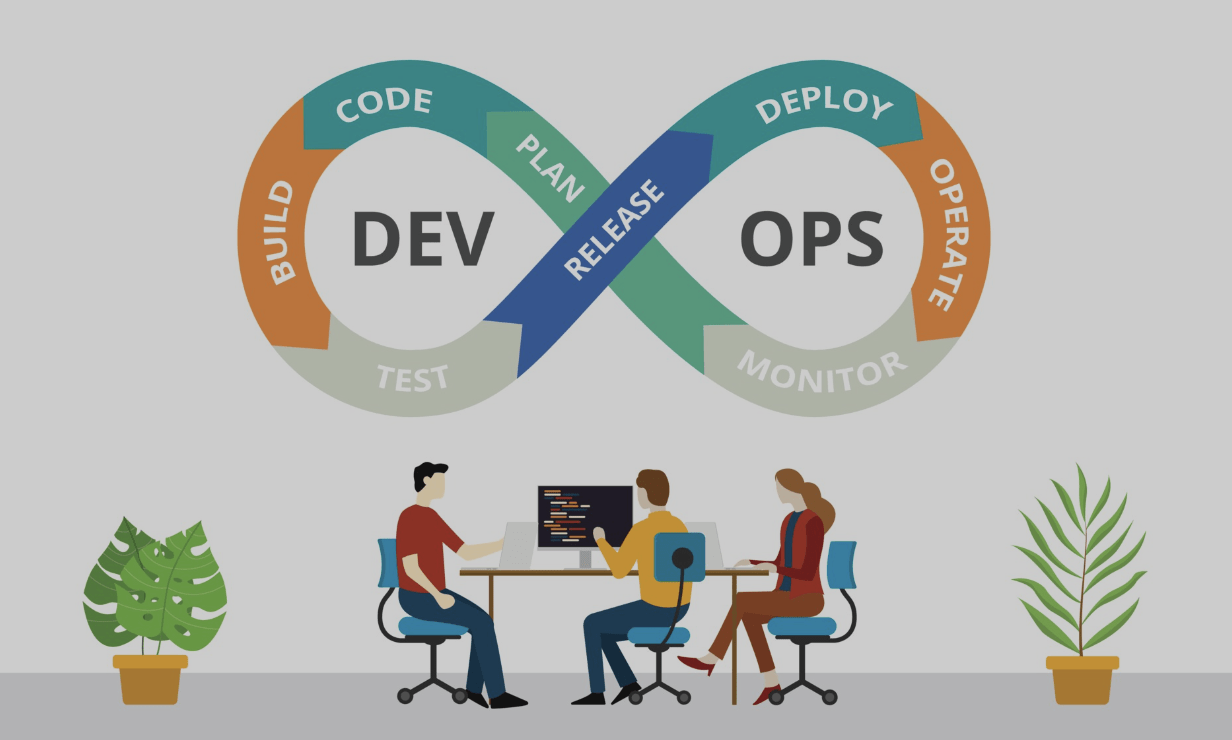
In the rapidly evolving modern business landscape, the importance of streamlined operations and efficient software delivery cannot be overemphasized. One strategy that has emerged as an industry game-changer is DevOps.
Understanding DevOps
DevOps is a strategic alignment of software development (Dev) and IT operations (Ops), aimed at promoting continuous, efficient, and high-quality software delivery. It's a transformative approach that merges cultural and technical aspects of software development, quality assurance, and IT operations into a unified framework.
The goal of DevOps is to enhance the speed and quality of both applications and support services, debunking the idea that speed and stability cannot coexist. Instead, it champions the belief that stability is a prerequisite for speed.
The Need for DevOps in Modern Businesses
The adoption of DevOps can significantly boost development workflows with better collaboration between different departments. It serves as a bridge that unites the development and operations teams, equipping them with the tools, processes, techniques, and methodologies to deliver products swiftly and efficiently.
With DevOps, organizations can design, build, update, and maintain their software rapidly, ensuring that improvements reach the end-user as promptly as possible. It also facilitates changes and enhancements to existing products, ensuring that user experience and product features are continually upgraded.
Benefits of DevOps for Businesses
1. Reduced Operational Costs
One of the most significant advantages of implementing DevOps is the potential for cost reduction in software development, deployment, and maintenance. This cost efficiency can be attributed to several factors:
Adoption of Free and Open-Source Tools: DevOps often involves the use of open-source packages, such as Gradle, Jenkins, or Selenium, to automate specific parts of the application process. This provides greater flexibility compared to using rigid proprietary software.
Automation of DevOps Processes: DevOps enables software teams to automate iterative tasks such as application monitoring, report generation, and troubleshooting, which would typically require a team of resources. This results in significant cost savings.
Optimization of Infrastructure and Modular Deployments: Application development in a DevOps framework can be done using containers, which require fewer resources and provide faster delivery compared to traditional virtual machines.
2. Enhanced Customer Satisfaction
DevOps is designed to deliver superior software at a quicker pace, identifying issues early in the development phase before reaching consumers. The collaborative culture and multiple feedback loops ensure customers receive the best products, resulting in improved customer satisfaction.
3. Increased Efficiency and Productivity
DevOps encourages automation, which boosts team productivity and cultivates a performance-oriented culture. With automation handling repetitive tasks, employees can focus on more productive and value-added tasks.
4. Improved Collaboration and Communication
DevOps breaks down silos and fosters closer collaboration between various teams—product, engineering, security, IT, operations, and more. This improved collaboration and communication lead to better outcomes.
5. Promotion of Innovation
DevOps provides an environment that encourages innovation by enhancing collaboration between development and operations teams. This strategy boosts the quality of software development and enables more frequent and quicker software releases.
6. Continuous Delivery and Development
DevOps enables continuous delivery and development, allowing organizations to execute changes and improvements swiftly. This not only saves time but also ensures the quality of software while minimizing time-to-market.
Overcoming Challenges with DevOps
Despite its numerous benefits, implementing DevOps can be challenging. Several common issues include low team productivity, long time-to-market, difficulties in creating a proper environment, high development costs, and dissatisfaction with product quality.
However, these challenges can be addressed effectively through the strategic implementation of DevOps. By automating processes, optimizing workflows, reducing manual operations, identifying bugs early, and implementing continuous integration and delivery, DevOps can significantly improve productivity, reduce time-to-market, lower development costs, and increase product quality.
The DevOps Engineer: A Key Player
The DevOps engineer plays a crucial role in implementing and maintaining the DevOps approach. Similar to a project manager, a DevOps engineer uses tools, processes, techniques, and methodologies from both development and operations to facilitate efficient software delivery.
The Bottom Line
The future of modern business and technology organizations lies in DevOps. Its adoption is not just a choice but a necessity for businesses aiming for efficiency, quality, and speed in their operations. By integrating DevOps into their operations, businesses can drive value, satisfy customer needs, and stay ahead of their competition.
To reap the benefits of DevOps, businesses must understand what DevOps is, how it's implemented, and why it's critical to their success. Successfully implementing DevOps can have a massive impact on an organization, improving efficiency and execution in crucial areas.